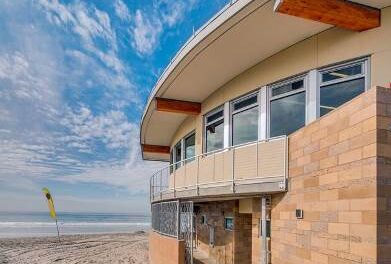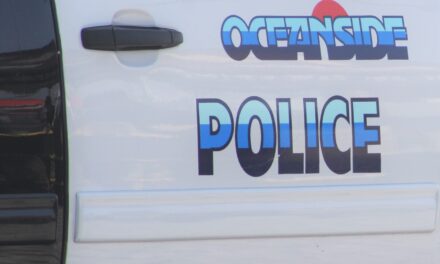
Coast Guard Cutter Stratton boarding team members guard 47,000 pounds of seized cocaine on the flight deck of the cutter in San Diego Photo: Petty Officer 3rd Class DaVonte Marrow
SAN DIEGO–The Coast Guard offloaded more than 47,000 pounds of cocaine worth over $721 million from the Coast Guard Cutter Stratton, in San Diego, Thursday, which was seized in 23 separate interdictions in the eastern Pacific Ocean by U.S. and Canadian forces operating in international waters off the coast of Central and South America.
Senior U.S. and Canadian officials discussed new tactics used by transnational organized crime groups and to highlight international cooperation in combating the threat posed by these dangerous groups. U.S. Coast Guard personnel currently assigned to Cutter Stratton turned the narcotics over to federal agents for investigation, prosecution and, ultimately, destruction.
“The threat of transnational organized crime is a danger no one ship, agency, country or person can address alone,” said Vice Adm. Fred Midgette, commander, U.S. Coast Guard Pacific Area. “We stand alongside our interagency and international partners resolved in a shared purpose to protect those harmed by these dangerous drugs and bring the criminals who smuggle them to justice.”
The crew of U.S. Coast Guard Cutter Stratton stopped two low profile go fast boats in three days, resulting in the seizure of more than 5,800 pounds of cocaine worth almost $78 million. The crews stopped five suspected drug smuggling boats in less than two months, resulting in the seizure of more than 12,000 pounds of cocaine worth more than $165 million.
The Coast Guard will also offload a case executed by Her Majesty’s Canadian Ship Nanaimo and a U.S. Coast Guard law enforcement detachment, which occurred Nov. 21, 2017. The Canadian-U.S. crew seized more than 3,300 pounds of cocaine worth more than $44 million from a go fast boat in international waters off the coast of Central America. During their patrol, the Canadian-U.S. crew of Nanaimo seized 4,385 pounds of cocaine worth more than $58 million.
Interdictions by other Coast Guard cutter crews represented in Thursday’s offload, and approximate amounts of cocaine seized, were: Five by the Astoria, Oregon based cutter Steadfast, 12,000 pounds; five by the Key West based cutter Mohawk, 6,700 pounds; five by the Portsmouth, Virginia based cutter Northland, 10,300 pounds; and two by the Key West based cutter Thetis, 3,100 pounds. Stratton is home ported in Alameda, California, and HMCS Nanaimo is based in Esquimalt, British Colombia. Since June 2017, the Coast Guard has interdicted 13 low profile go fast boats and two self-propelled semi-submersibles. Low-profile go fast boats are specifically designed for smuggling illicit cargo such as drugs, weapons and cash. Low-profile go-fast boats, a variant design from traditional go-fast boats, ride low in the water to reduce their radar signature, have multiple outboard engines to allow them to travel at high speeds and are painted to blend in with the water to avoid detection from military and law enforcement authorities operating in the region.
Low-profile or low-profile go-fast boats represent four of the 23 cases being turned over to federal agents during Thursday’s offload. Remaining cases also involved a fishing vessel and more than 15 go-fast boats, traditionally an open-hulled boat with multiple outboard engines used to outrun military and law enforcement officials. This offload showcases the variety of tactics and methods of conveyance transnational organized crime groups use to evade military and law enforcement detection.
The multinational effort to combat criminal networks in the region includes more than 19 Partner Nations operating with Joint Interagency Task Force South (JIATFS) a component of U.S. Southern Command. This includes Canadian forces, who helped stop more than 16,960 pounds of illegal drugs worth more than $227 million since Oct. 1, 2016. JIATFS’ Partner Nations removed approximately 113 of the 283 tons of cocaine seized or disrupted for FY17. JIATFS detects and monitors illicit trafficking in the air and maritime domains to facilitate International and Interagency interdiction and apprehension of illicit traffickers.



